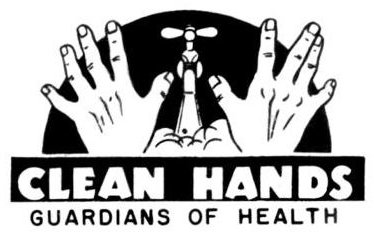Safe Food Handling: Learn How to Prevent Food Poisoning
Safe Food Handling to Prevent Food Poisoning
Hands
Before preparing any food item, it is important to wash your hands with soap and hot water. If you have an open wound on your hand, wear a clean disposable glove over it.
Raw Meat
Before handling raw meat, it is a good idea to remove rings from your hands.
After handling raw meat, immediately wash your hands, even if you wore gloves. Wash all dishes and utensils that were in contact with the raw meat and anything else you touched with your contaminated hands, like the faucet. Serve all food on clean plates and always use clean utensils when eating.
Fresh Produce
To prevent food poisoning from fresh produce (including organic products), wash it thoroughly before eating or cooking. Pre-washed produce in unsealed bags should be washed. Running warm water over your fruits and vegetables is adequate in removing bacteria, reducing the risk of a food borne illness. Soap or detergent should not be used. Even firm produce, such as cucumbers or cantaloupe, should be cleaned under running water, using a produce brush, before peeling or cutting.
Cutting Boards

Use separate cutting boards for raw meats and produce/other foods. If your cutting board is not dishwasher safe, be sure to clean it with plenty of soap and hot water. You can mix 1 teaspoon of bleach with 1 quart of water, pour it over the cutting board, leave it on for a few minutes, and rinse. Replace cracked and worn out cutting boards.
Thawing and Cooking
Thaw and cook food according to the instructions to prevent food poisoning. If you use a food thermometer, wash it each time with soap and hot water before reinserting it into the meat.
Sponges
Bacteria breeds and multiplies on sponges between use. A safer choice when washing dishes or cleaning countertops is a dishcloth (when periodically washed in the washing machine). To decrease your chance of getting a food borne illness, use one dishcloth to wash dishes and another one to clean countertops.
Storing
Store prepared and leftover foods in the refrigerator or freezer within 2 hours. Store securely-wrapped raw meat away from produce and other ready to eat items.
Refrigerators should be set at 40° F and freezers at 0° F. Occasionally check the temperature using a thermometer.
Safe food handling to prevent food poisoning is especially important for certain individuals. Young children, older adults, people with weak immune systems, and pregnant women are more at risk of getting a food borne illness.
Disclaimer
Please read this disclaimer regarding the information contained within this article.